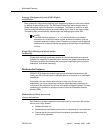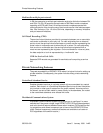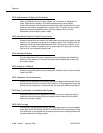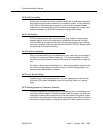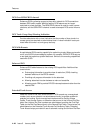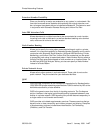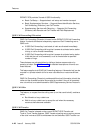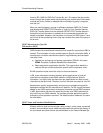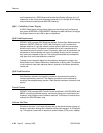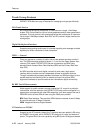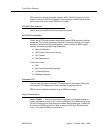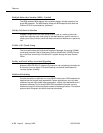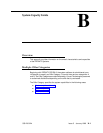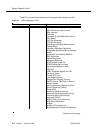
Private Networking Features
Issue 5 January 1998
A-49555-230-024
forms to ISO 13869 for QSIG Call Transfer By Join. This means that the transfer
occurs through the system where the transferring user resides and if the transfer
involves two trunks, neither is released after the transferring party is dropped
from the call.
When you use this feature, you see no difference between QSIG Call Transfer
and the standard DEFINITY ECS Transfer or Trunk-to-Trunk Transfer features.
QSIG Call Transfer differs from the standard DEFINITY ECS Transfer feature in
that additional call information is available for the connected parties after the
transfer completes. However, the information is only sent for QSIG trunks. If one
call is local to the transferring switch, that user receives the name of the party at
the far end.
QSIG Manufacturers Specific
Information (MSI)
QSIG handles non-standardized information that is specific to a particular PBX or
network. This information is known as Manufacturer Specific Information (MSI). A
manufacturer can define manufacturer-specific supplementary services opera-
tions after it has:
■ Applied to a sponsoring and issuing organization (ECMA in this case)
ECMA: European Computer Manufacturers Association
■ Been assigned an organization identifier. This organization identifier is
used as the root of the manufacturer-specific service-operation value.
All MSI operation values should be unique to that manufacturer.
In R6, a new information-transport interface allows applications to hand-off
information for transport across QSIG networks via Manufacturer Specific
Information. It is highly likely that more than two applications will need to send
information at the same time. Therefore, the limit has been increased to 4 for R6.
Manufacturer-specific supplementary services can be created using specific
operations encoded with the manufacturer’s identifier. For R6, support has been
added for non-QSIG applications to transport information across QSIG networks
in MSI. Applications now have the same functionality over QSIG networks that
they have over non-QSIG networks. An interface provides application-specific
processing of the operations received. The default platform treatment is to store
the information.
QSIG Name and Number Identification
Allows a switch to send and receive the calling number, calling name, connected
number, and connected name. Additional parameters that control the display of
the connected name and number are administered on the Feature-Related Sys-



